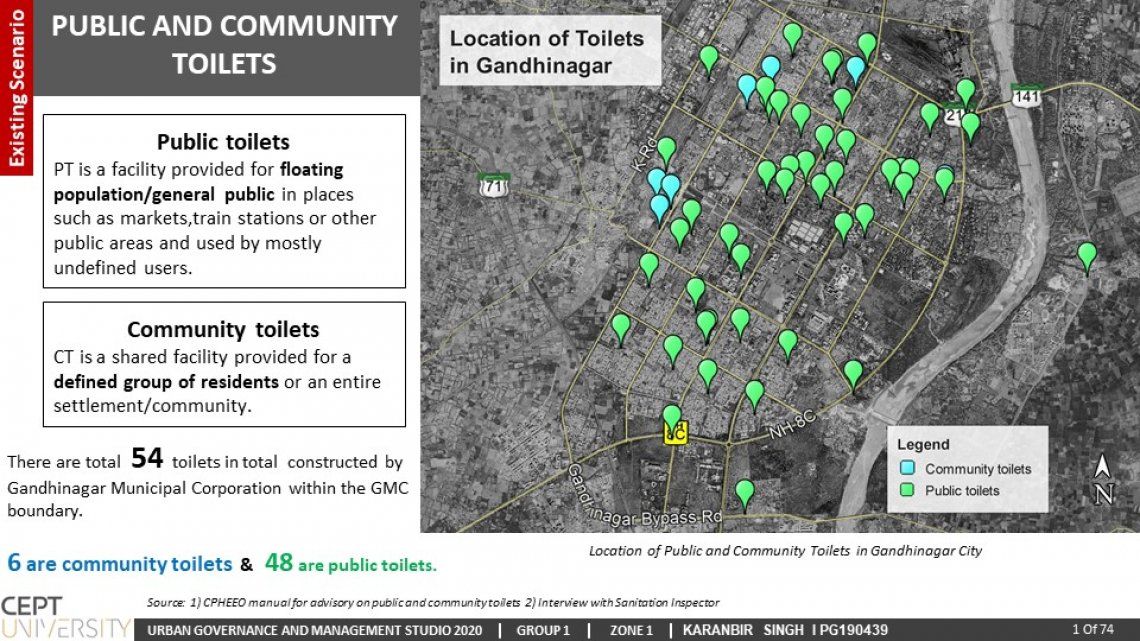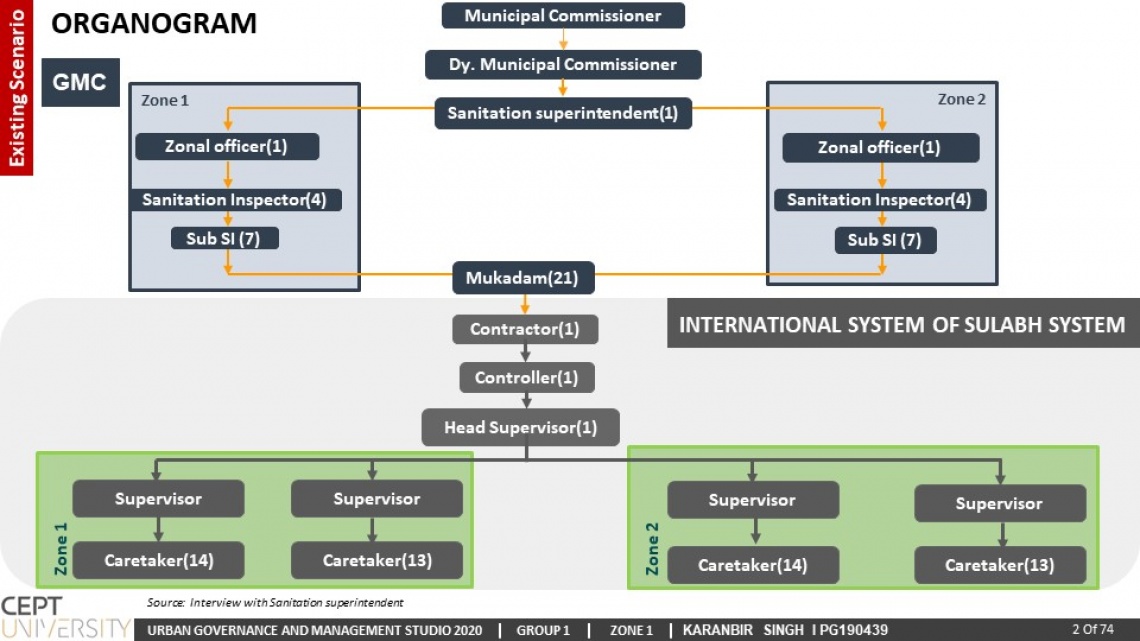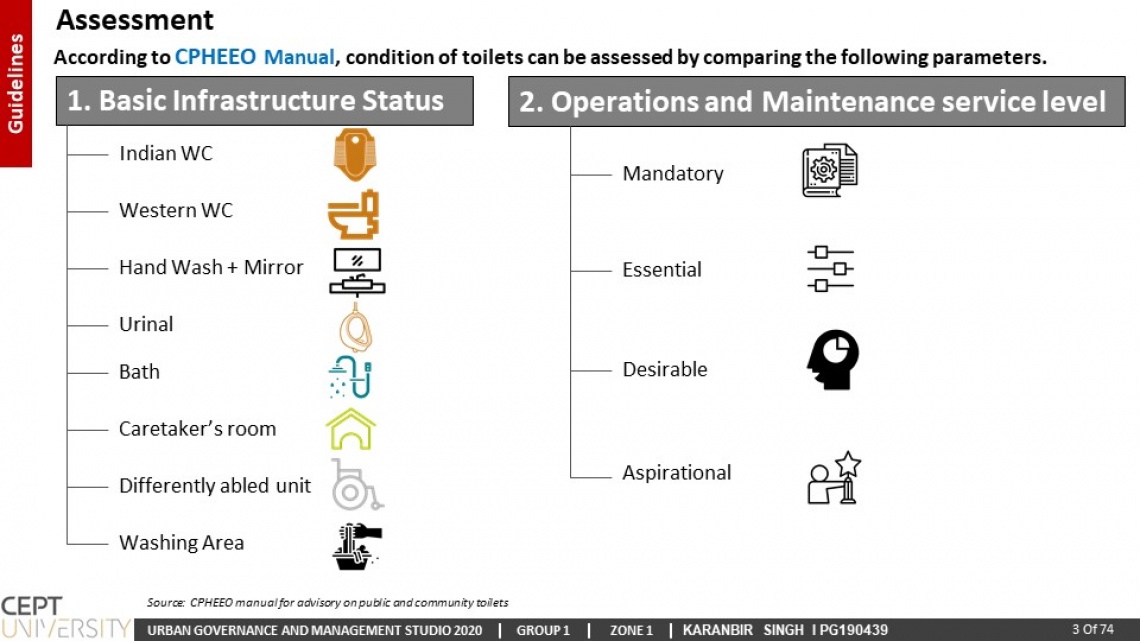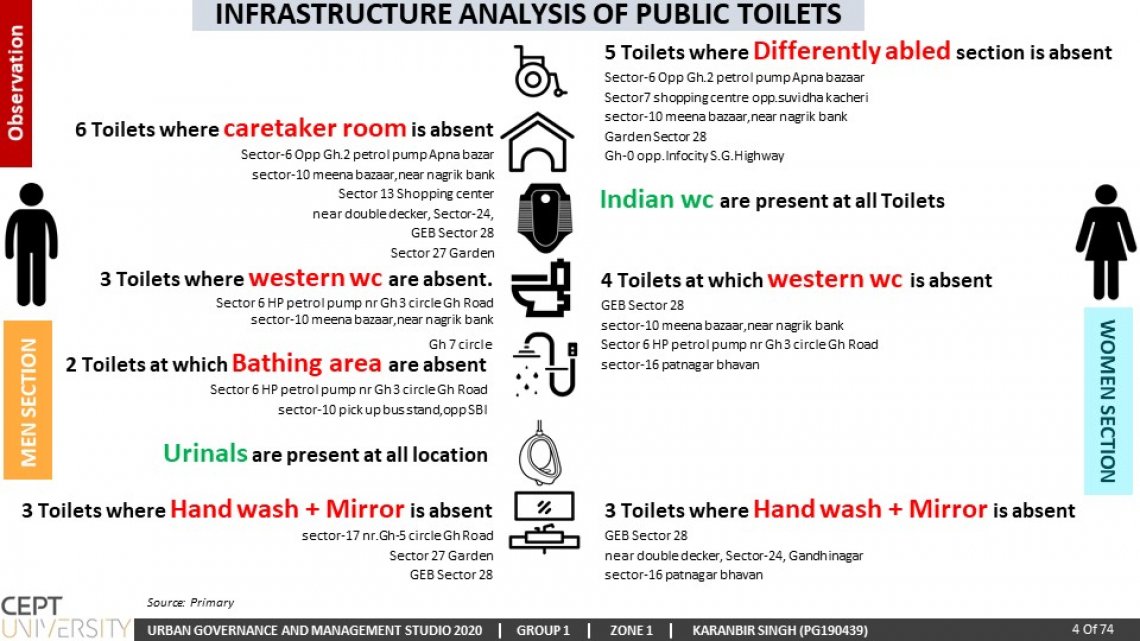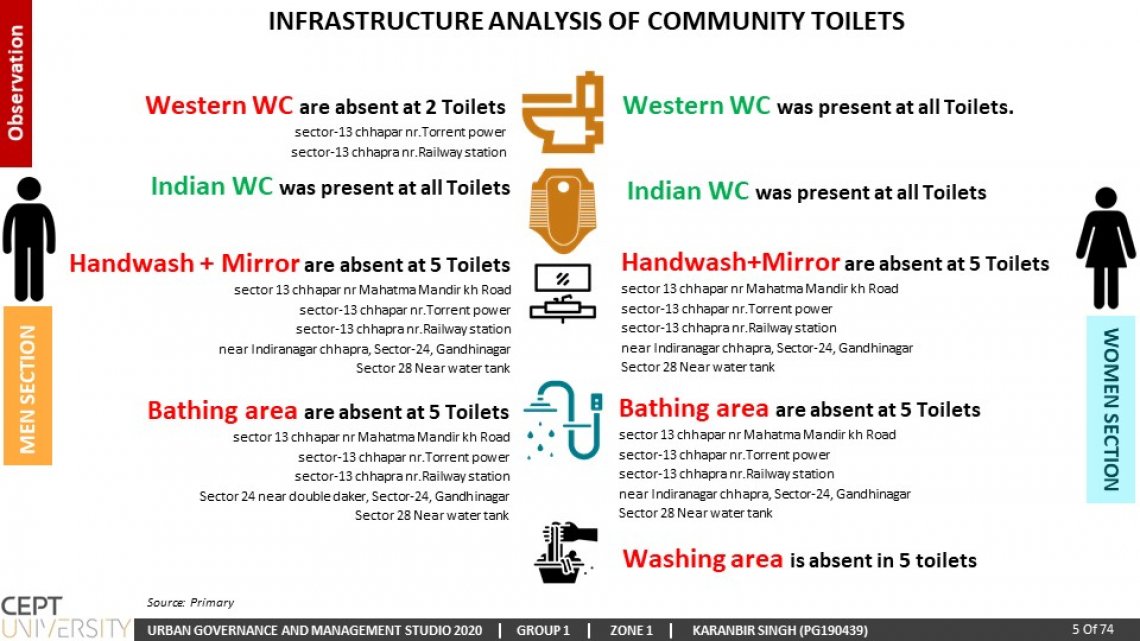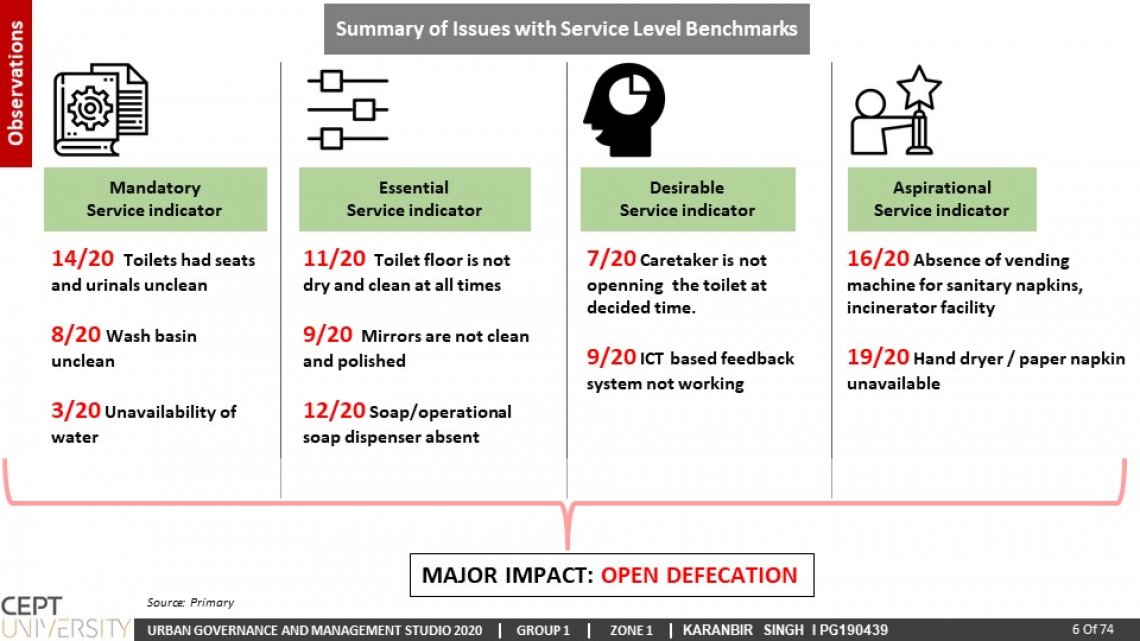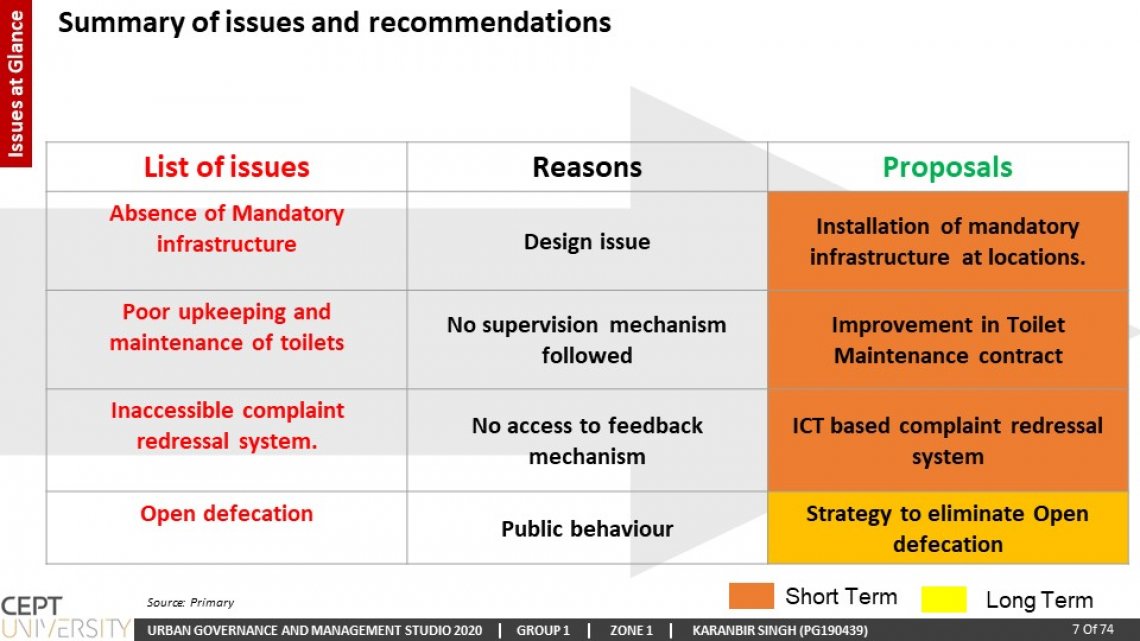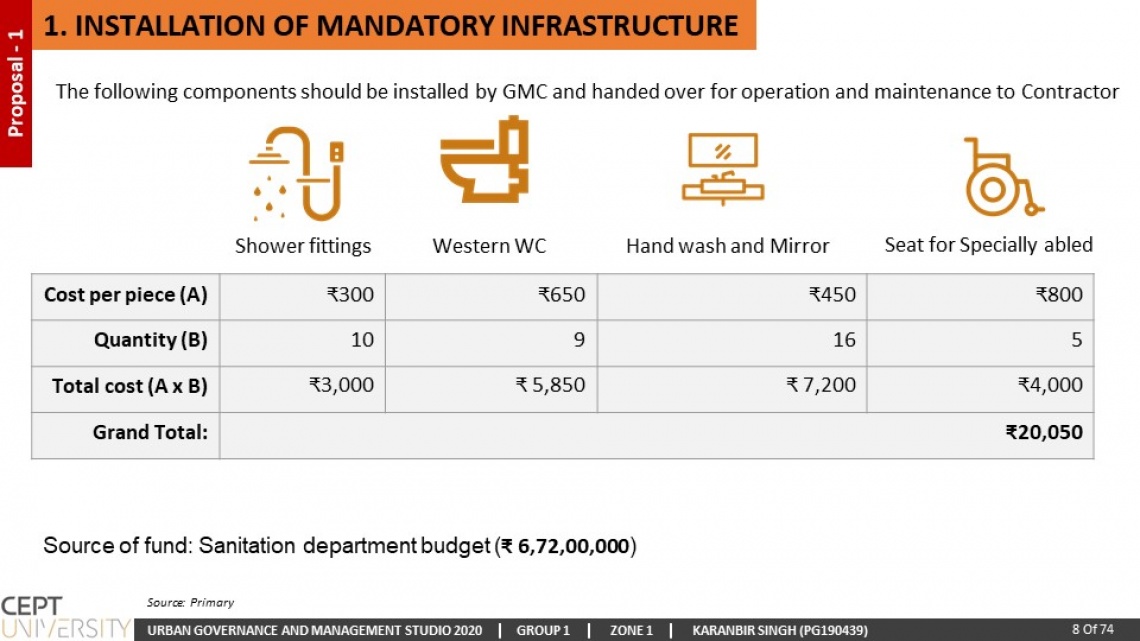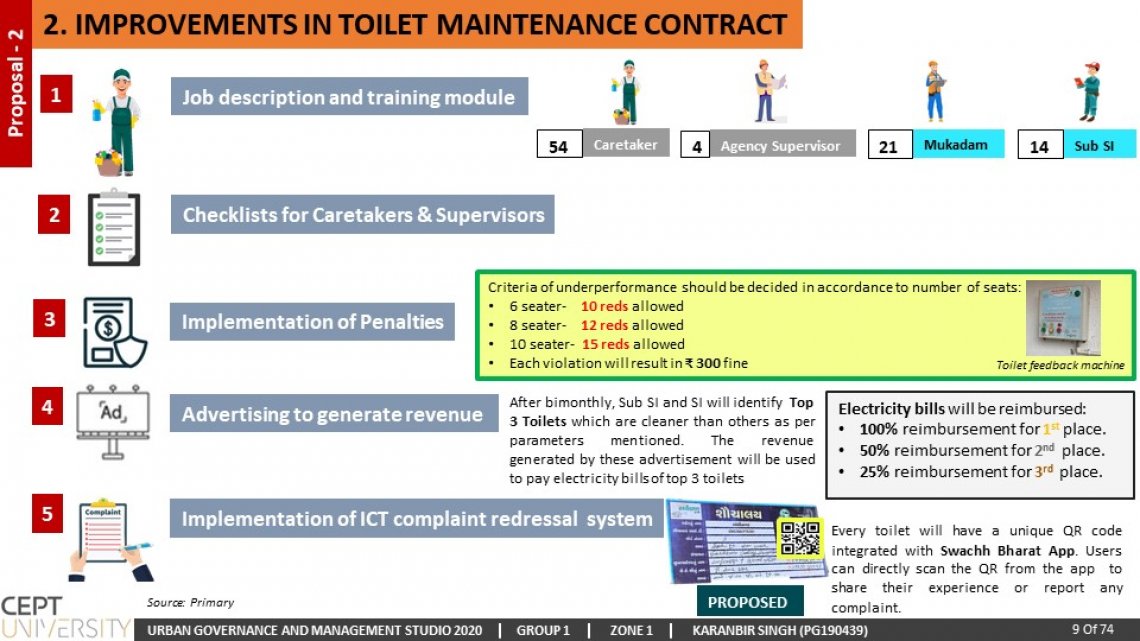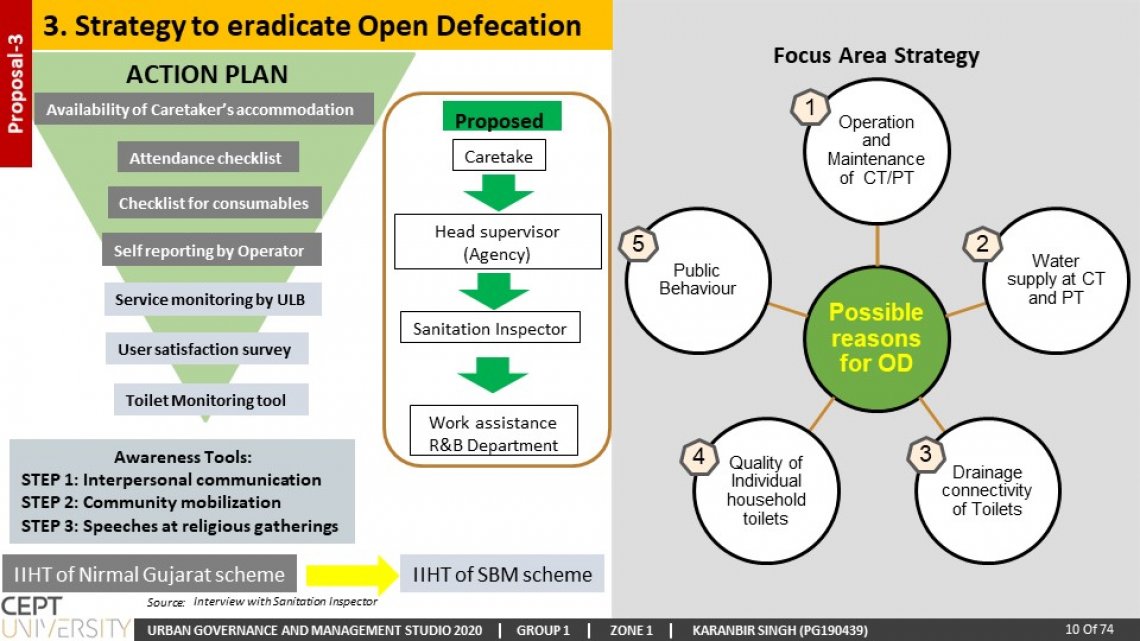Your browser is out-of-date!
For a richer surfing experience on our website, please update your browser. Update my browser now!
For a richer surfing experience on our website, please update your browser. Update my browser now!
Currently, Gandhinagar City is having an ODF++ status according to Swachh Sarvekshan 2019. The study shows how certain managemental and cost-effective methods can be used by Gandhinagar Municipal Corporation to invite holistic participation from contractors and citizens for keeping the toilets clean and eradicate open defecation in and around slums and other open defecation prone areas coming under GMC's boundary. Based on primary surveys prior COVID situations the following proposals have been made.
